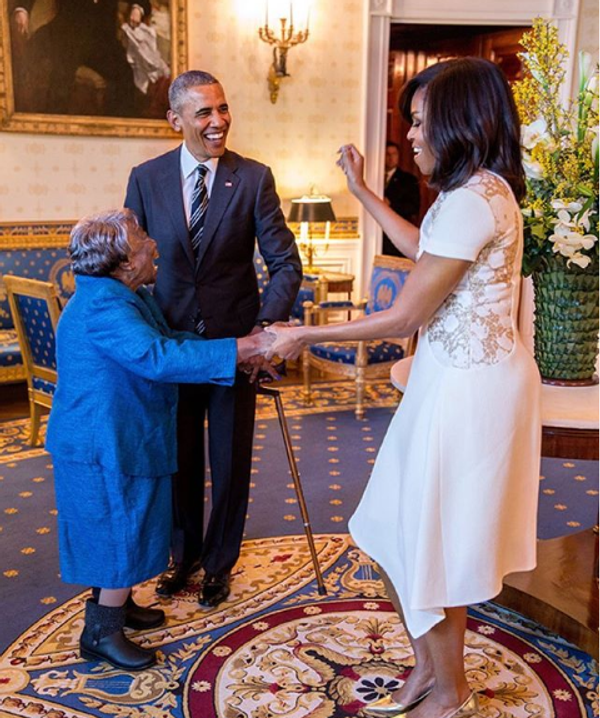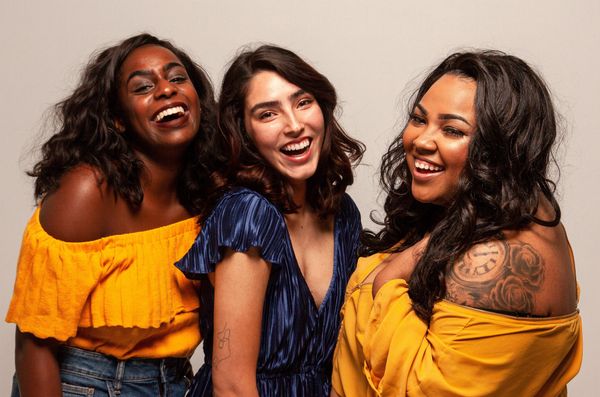“Feminism” was not a word common to my conservative Midwestern household growing up.
As far as I knew, a feminist was one who would go topless during protest marches, touting a sign that promoted the rights of a woman’s vagina. The movement was never discussed, never really explained in any sort of detail to me as a young girl.
Instead, I grew up in an environment where my value was never spoken of in terms of my gender.
My parents worked every day to instill confidence and worth within my sisters and me, to explicitly tell us over and over how much we were capable of accomplishing, how we have copious and unique offerings to give the world.
By surrounding us with these 10 truths, they taught us to be feminists without ever needing to utter the word:
1. Women are equal to men socially, economically and politically.
The notion that I might not be as competent or as intellectual as a man for no other reason than the simple fact that he is male and I am female had no place in our home. Instead, at every turn, my sisters and I were met with high expectations by my parents--we were challenged to be the best versions of ourselves, to increase our knowledge, to explore our beliefs, to hone our skills and talents. If we weren’t as “good” as another person in some regard, it was simply because we weren’t---it had nothing to do with gender, period.
2. All sexes are equal.
While my value as a woman was constantly reinforced, it was never at the expense of another gender. I was taught that all people are equal, no matter what. Just as I should not be devalued for the mere fact that I am a woman, I should not denigrate another gender, either.
3. I should be valued for more than just my body.
This was ingrained in me over and over and over again: my value, my inherent worth, has NOTHING to do with my body. I am many things--a person who giggles at the drop of a hat, one who loves to have deep life talks, one who likes to read as much as she likes to watch hours of Netflix, etc. What I am NOT is a body simply to be admired or leered at.
4. Religion should not be misconstrued to create a society of subservient women.
Often, biblical passages such as Ephesians 5 are used to support the idea that women are supposed to be good little wives who always submit to their husbands’ wills. They are simply supposed to support him as he is the “head” of the household.
Not in my house.
We were taught, again, that the sexes are equal, meaning that not only are women perfectly capable of being talented and effective leaders of a church (the thought that women couldn’t be head pastors of a church was a completely foreign concept to me) and should be able to be in a position of authority over a man, but that women are also not to be under the "rule” of their husbands.
A relationship is meant to be a partnership, both submitting to each other, both with equal footing, both having a say in what actions should be taken. It is a mutual support system.
5. You should fight for the underdog.
We were always taught to fight for those who were at a disadvantage, to have compassion on those who were marginalized for some reason or another, albeit it race, ethnicity, religion or--you guessed it--gender. Issues that women face, such as unequal pay or the increased chance of being sexually harassed, are issues that ALL should fight against, not just women.
6. Things should not be inherently feminine or masculine.
For my sisters and me, this was a big thing growing up. Though it was not explicitly discussed until we were older, it was taught to us in how we were never told, or even encouraged, to do certain activities or to like certain things simply because we were female.
We were given both Barbies and Legos. Our closets were full of both athletic shorts and dresses, t-shirts and blouses. We played any sport we wanted, and we also loved baking cookies. We were encouraged to grow our knowledge of both math and English, of both science and social issues. My sister’s room was purple, and mine was blue.
We liked what we liked, we wanted what we wanted, because of who we were. They never did “gender-neutral” things such as painting our rooms green or yellow, because the message they wanted to instill was this: those traits should stop being associated with gender in the first place.
7. Women should get to choose the life they want to live.
I had a stay-at-home mom--and she is no less a feminist because of it.
If a woman wants to be a stay-at-home mom, great! If she wants to devote herself to her career, cool! If she wants to do both, awesome! The point is that she has a choice.
8. The fight for women’s equality is not tied to any gender, race or sexuality.
Guess what? My straight, white dad is a feminist.
Quite often, feminism is wrongly stereotyped as a movement only backed by women and minorities, and those women are often labeled as being lesbian simply because they are feminists (the fact that this is used as an insult is a whole other issue to be addressed, too).
Feminism is the belief that all are equal, that people should not be discriminated against because of their gender. Anyone and everyone who believes this is a feminist, no matter their race, sex or sexuality.
9. I should never be silent simply because I am a woman.
I was taught that my voice matters, that what I have to say holds merit. I should never be silent because I am afraid that what I have to say won’t be heard over a man’s word, that I will be overlooked if I choose to wear a pencil skirt instead of a pantsuit or to wear my hair long instead of cut short.
I should never quit speaking up for the multitudes of women who are disregarded, who are hushed and shoved into the background simply because they are female.
10. Being a woman does NOT equal being weak.
Men may be genetically inclined to have more muscle mass than women, but the idea of females being the “weaker sex” stops there. Period.
My parents may have never taken me to a march, may have never sat me down and hashed out the details of what being a feminist means, but one thing is certain: they shaped a young girl into a woman who wholeheartedly believes, who knows, that she is equal.
And I won't stop fighting until the rest of the world knows this, too.



















